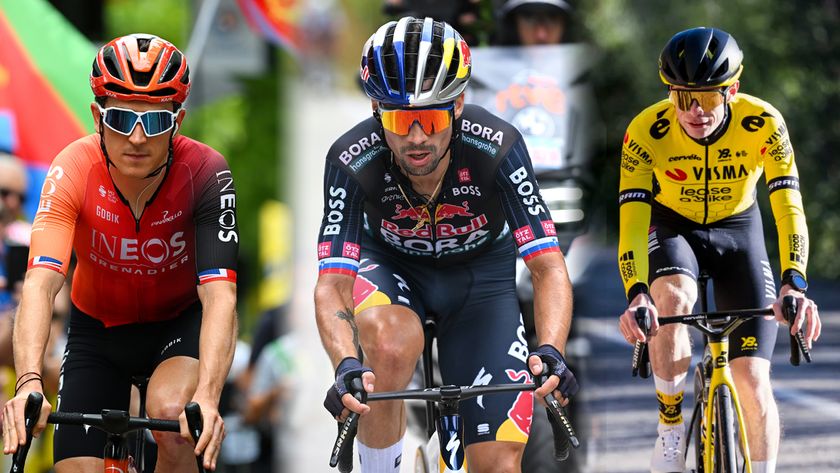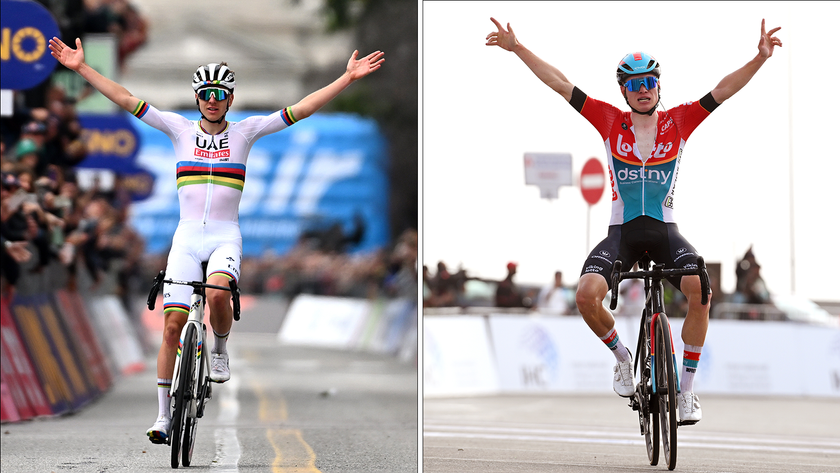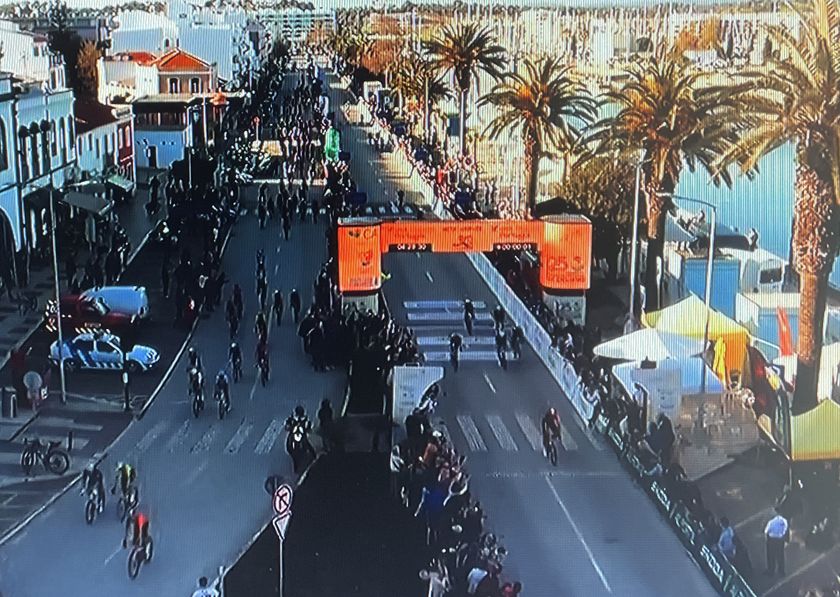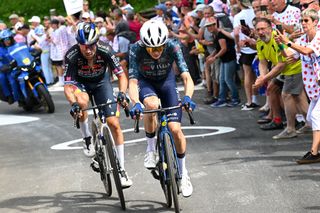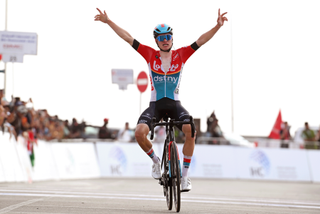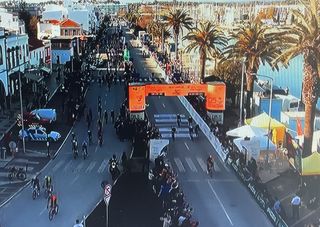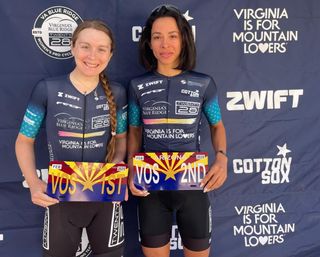2018 Milan-San Remo Preview
Sagan and Kwiatkowski the favourites, but La Primavera is never that simple








What better than a dash of polemica to quicken the pulse ahead of Milan-San Remo? Michal Kwiatkowski (Team Sky) pipped Peter Sagan (Bora-Hansgrohe) to win last year’s race, and the Pole may have edged the verdict in their exchange of views earlier this week for good measure.
The 2017 edition of Milan-San Remo is in many respects, Sagan’s Classics career in microcosm. He won the strongest man competition by ripping clear with a disarmingly fierce acceleration on the Poggio but lost the race after bringing Kwiatkowski and Julian Alaphilippe (Quick-Step Floors) along for the ride.
Kwiatkowski’s superior tactical nous helped to win the three-up sprint on the Via Roma, and the manner of his victory was entirely in keeping with the race’s status as the quintessential thinking man’s Classic. Past winners like Sean Kelly and Oscar Freire would surely have approved.
Sagan, however, was less complimentary about Kwiatkowski’s victory earlier this week, delivering a haughty critique.
“If you analyse how Kwiato won last year, then... If I win like that, I wouldn't be happy with my performance,” Sagan said.
Kwiatkowski has been around the business end of big races for just as long as Sagan, and boasts an enviable conversion rate from winning positions. He pointedly dropped the microphone after delivering his retort during his winner’s press conference at Tirreno-Adriatico: “Sometimes you don't win the races by being strongest, but you need to be the smartest."
Therein lies the challenge for Sagan, both this Saturday and for the remainder of this Classics campaign. His talent is not in dispute, nor is his temperament on the big occasion – who can argue with three rainbow jerseys? – but it is also true that he has not yet amassed a Monuments palmares to match his extravagant physical gifts. In Milan-San Remo, he been a favourite every year since his 4th place in 2012, but has yet to land victory, enduring near misses in 2013 and 2017.
"I don’t care about victories, it’s more about show,” Sagan claimed in midweek.
In the Monuments, however, less is often more, and it is a lesson that Sagan has already digested and applied to devastating effect at the Worlds. His Bergen triumph, in particular, was masterpiece of pragmatism: after hiding in plain sight for seven hours, Sagan crammed all of his spectacle into the final 200 metres. Nobody asked for their money back.
At 291 kilometres in length, Milan-San Remo is an equally slow-burning affair and demands similar patience. Every year, Sagan has a winning hand for La Primavera: as a rule, he climbs better than anyone who can sprint faster than him, and sprints faster than anyone who can climb better. As ever, so much will depend on how he plays those cards.
"He is the only guy in modern cycling who can make the difference on the Poggio with one effort,” Elia Viviani (Quick-Step) said recently. "I think Sagan will make the difference every time until he wins Milan-San Remo. We need just to be with him and then try to beat him in the sprint.”
The big-name contenders
Sagan and Kwiatkowski are obvious favourites for Milan-San Remo, given their pedigree and their current form, but one of the joys of La Classicissima is its democracy. No other race of this standing boasts such a lengthy list of possible winners. And for all the worn complaints about how Milan-San Remo follows a predictable script, there is almost always an ad lib or two in the breathless final half-hour over the Cipressa and Poggio.
The third man from last year’s winning move, Julian Alaphilippe, was bubbling under nicely at Paris-Nice last week, and is part of a strong Quick-Step Floors team. Indeed, such is their strength in depth that the loss of Fernando Gaviria through injury means that they have to start the race with ‘only’ three leaders instead of their expected four.
Elia Viviani provides an option for a Via Roma bunch sprint, while Philippe Gilbert – twice a podium finisher and often an animator on the Poggio – has placed renewed focus on the race this year as he bids to complete a full set of Monument Classic victories. Together with Alaphilippe, they form a triumvirate ready for every scenario.
Alexander Kristoff (UAE-Team Emirates) won with a powerful sprint on the Lungomare Italo Calvino in 2014 and could – perhaps should – have added a second win on the Via Roma a year later. He is joined in the UAE Team Emirates line-up by a man who has twice finished on the podium, Britain's Ben Swift.
Arnaud Démare (Groupama-FDJ) beat Swift into second two years ago – not without some polemics – and the Frenchman looked very much on song in the early part of Paris-Nice before abandoning to prepare for Milan-San Remo. On the other hand, Mark Cavendish (Dimension Data), another past winner, has had his preparations ruined by early crashes at the Abu Dhabi Tour and Tirreno-Adriatico. Michael Matthews (Sunweb), a man with blessed with Sagan-like aptitude for this race, also lines out despite missing Paris-Nice due to a fractured shoulder.
The list of riders looking to try their luck on the Cipressa and Poggio is just as long, with Vincenzo Nibali (Bahrain-Merida), Gianni Moscon (Team Sky) and Nathan Haas (Katusha-Alpecin) among them, as well as Filippo Pozzato (Wilier-Selle Italia), who often delivers a cameo in the finale, though a repeat of his 2006 triumph seems unlikely.
Greg Van Avermaet’s true goals are on the cobbles, but the Belgian has caught the eye in Milan-San Remo in the past, and is at the head of a BMC team that includes 2012 winner Simon Gerrans and the fast-finishing Jürgen Roelandts.
The route: 291km and seven hours in the saddle
The longest Classic has the route that needs the shortest introduction. The course has had the occasional tweak over the generations – though, mercifully, the threat of the Pompeiana’s inclusion has abated for now – but the general tenor has remained unchanged since the Poggio’s introduction in 1960.
The race sets out early on Saturday from outside Milan’s Castello Sforzesco, and follows a well-beaten path out of the city centre and towards the Riviera by way of Pavia, Tortona and Masone. The Passo del Turchino comes after 142km and marks a symbolic transition from winter to spring, from the frigid air of the northern plain to the bluer skies of the Riviera.
The intensity of the race slowly begins to ratchet upwards from the midway point, and the winnowing down process begins at Laigueglia with a little over 50km remaining. The Capo Mele, Capo Cervo and Capo Berta force the first selections from the rear of the peloton, but the endgame starts in earnest on the twisting Cipressa (5.6km at 4.1%), before the high-octane shoot-out on the Poggio (3.7km at 3.7%) overlooking San Remo.
Timing is everything in such a white-knuckle finale. The summit of the Poggio is just 5.4km from the finish line, and with its sinuous descent through the greenhouses, a handful of seconds can be enough to fend off the sprinters on the drop to San Remo.
A moment’s hesitation when the road flattens out, however, can be fatal. To win on the Via Roma, a rider can afford no errors. Even Peter Sagan knows that.

Get The Leadout Newsletter
The latest race content, interviews, features, reviews and expert buying guides, direct to your inbox!

Barry Ryan was Head of Features at Cyclingnews. He has covered professional cycling since 2010, reporting from the Tour de France, Giro d’Italia and events from Argentina to Japan. His writing has appeared in The Independent, Procycling and Cycling Plus. He is the author of The Ascent: Sean Kelly, Stephen Roche and the Rise of Irish Cycling’s Golden Generation, published by Gill Books.
Most Popular
Latest on Cyclingnews
-
How to watch the Volta ao Algarve 2025 – Live streams, TV channels
All the broadcast info for the Portuguese stage race where Vingegaard and Roglič begin their seasons -
How to watch UAE Tour 2025 – Live streams, TV channels for stage 4
All the broadcast info for the seven-day Emirati stage race where Tadej Pogačar starts his season -
'It is a joke' - disappointment, anger and calls for responsibility sear through Volta ao Algarve peloton after stage 1 finish chaos
Organisers blame themselves for 'not doing enough' after riders go off course, but some riders point to lack of pre-stage recons -
Emily Ehrlich sets record with fourth consecutive GC win at Valley of the Sun Stage Race in Arizona
Virginia's Blue Ridge-TWENTY28 puts four riders in top 10 as 'our teamwork was flawless'
